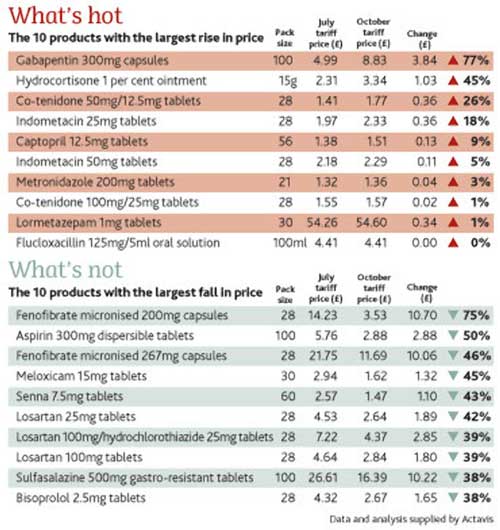

 For the first time in three quarters, the category M tariff has seen a decrease in overall reimbursement from October.
For the first time in three quarters, the category M tariff has seen a decrease in overall reimbursement from October.
The adjustment is in the region of a £60-70 million per quarter reduction, once market growth has been factored in. This means the average pharmacy will see £2,400 removed from generics purchase profits over the coming three months.
For the third quarter in a row there has been a large amount of activity in the category, with only two out of 434 products staying at the same reimbursement level. Most savings to the NHS have been made by reducing virtually all the products in the category; of the 432 products whose reimbursement levels were changed, just nine were increased.

The most prominent reduction is on the new entrant, fenofibrate micronised 200mcg capsules, which has the most radical percentage reduction in reimbursement of 75 per cent. (The other addition to the October tariff is fenofibrate micronised 267mcg capsules, down 46 per cent.)
Next month also sees the removal from the tariff of a further 11 products, including co-amoxiclav 250/125mg and levothyroxine 25mcg.
The new basket of category M products is worth £1.3 billion, down from £1.7bn. The Category M Barometer index has decreased from 125.9 in quarter three to 102.7 in quarter four.
On the most commonly dispensed lines by volume, reimbursement prices have decreased
on the majority of products in quarter four. In fact, an annualised amount of over £80m has been removed from these lines; this compares to £39m added in quarter three.
For the average pharmacy this equates to £2,000 per month being taken away from the bottom line (if whole market volumes are used and just the top 20 lines are dispensed).

